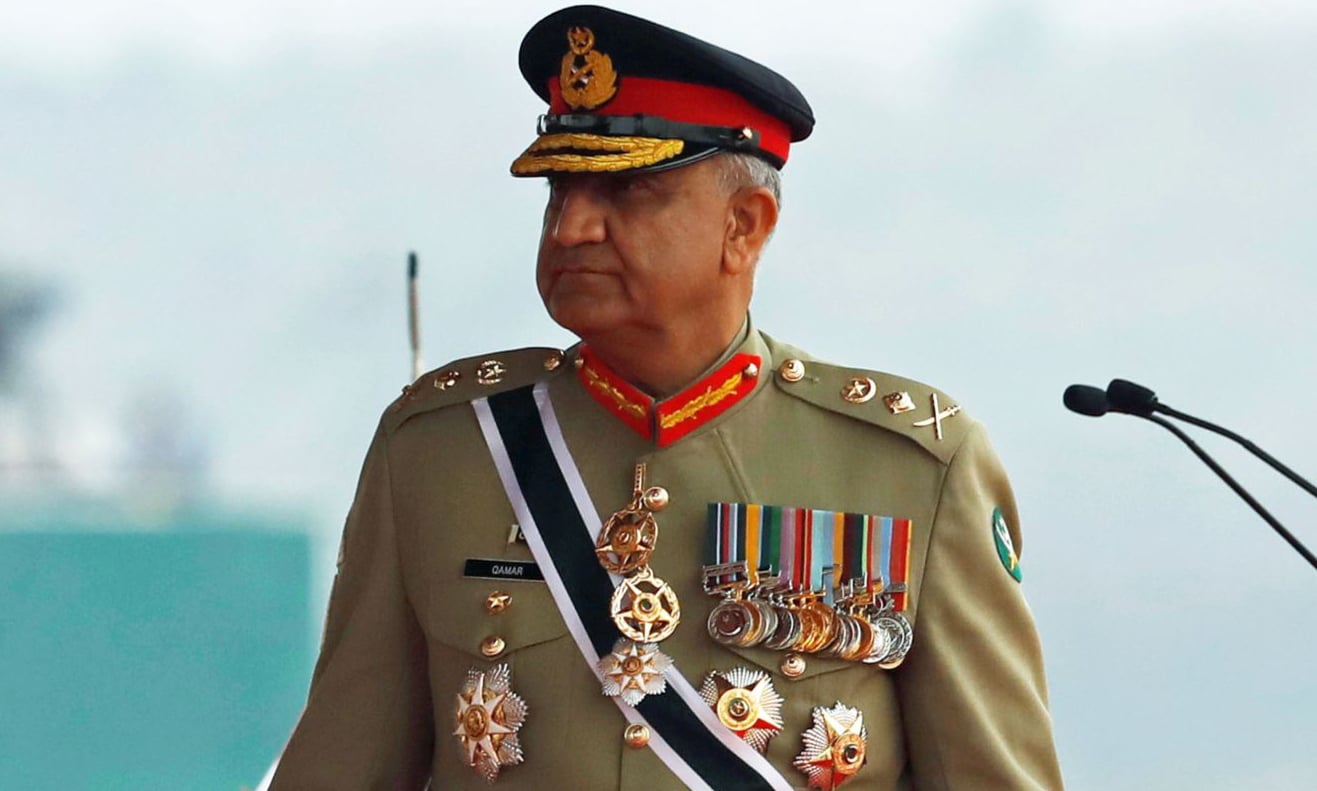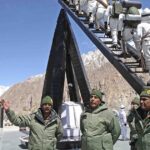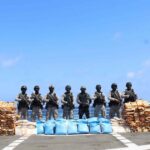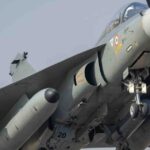
SOURCE: SUNDAY GUARDIAN LIVE
An analysis of the Pakistan army regarding its outlook towards the civilian establishment in the country, done by some Indian agencies in 2015, has become relevant today after the Pakistan army has sought a 20% pay hike in their salaries despite the country going through a massive economic crisis.
The Pakistan army is facing massive domestic discontent in the Federally Administered Tribal Areas (FATA) for allegedly carrying out the killing of popular Pashtun leader, Sardar Muhammed Arif Wazir, who was assassinated on 1 May in South Waziristan, with his supporters alleging that his killing was carried out under the instruction of the Pakistan army. His killing has come less than 12 months after 13 Pashtun Tahafuz Movement (PTM) supporters were gunned down by the army in the North Waziristan district of the Khyber-Pakhtunkhwa (KP) province.
Wazir was a prominent member of the PTM, a newly formed two-year-old political party, which has earned the reputation of being the only organised political party in the country that has criticised the Pakistan army for using jihadi groups to carry out proxy wars on its behalf.
In their analysis, which is classified and for the use of the departments concerned in India, the Indian agencies had found that “prolonged periods of military rule have instilled a feeling in the armed forces that they have a rightful place in the governance of the country and that they are the real guardians of the country’s ideology and territory”.
In its memorandum submitted to the Pakistan finance ministry on 8 May, the Pakistan’s military, through the ministry of defence, has sought an additional outlay of Rs 63.69 billion to cover a 20% increase in the salaries of the personnel of the army, navy and air force amid cost-cutting and austerity measures by the civilian government. It is pertinent to mention that the government in the 2019-20 budget passed had allocated Rs 1.5 trillion for defence, which was 14% of the total budget outlay.
This demand from the military has come even as Pakistan is going through a prolonged period of economic hardship.
As per a recent World Bank report, Pakistan is likely to fall into a recession due to the Covid-19 pandemic and the long years of economic slowdown that it has been going through. Last year in May, Pakistan was forced to seek a bailout of $6 billion from the International Monetary Fund (IMF) to keep itself afloat. It was the 13th time Pakistan was forced to seek help from the IMF in the last 30 years.
“The Pakistan army, for years now, has considered itself superior to any civilian or a civilian set-up. The result of the study that we carried out in 2015 matches what is happening in Pakistan right now. While Pakistan’s economy is going south and the country is fighting Covid-19, its army is more concerned about its appraisals,” a Delhi-based official, who was a part of the analysis, told The Sunday Guardian.
The extent of Pakistan army’s involvement in running the country can be also gauged from the arrest and the subsequent escape of former Tehreek-e-Taliban functionary Ehsanullah Ehsan. Ehsan, who was “arrested” by the Pakistan army in April 2017, by his own admission, was kept in a safe house for almost three years before he “escaped” in January 2020.
After escaping Ehsan had tweeted that a retired Pakistan major and a prominent Islamic cleric, who preaches Wahhabism, had acted as guarantors of the army to ensure that the Pakistan army kept its promises that it had made to Ehsanullah Ehsan for his “surrender”.
Until he was in the safe house, Ehsan was protected from any civil trials for the plethora of terrorism charges that he was facing. This is akin to Dawood Ibrahim surrendering to the Indian Army, staying in an Army guesthouse and facing no criminal cases.
“Religious radicalization in the Pakistan army is an open secret and perhaps it is because of these sentiments that Ehsanullah Ehsan, who, till the time he was active, spoke about bringing a Shariah law in the country, got a caring treatment from the army since he spoke their language,” the same official, quoted above, said.
In fact, the classified assessment, mentioned earlier, too, has gone into how religious indoctrination had become a prominent part of the Pakistan military.
“Islamisation of the Pakistan army begins from the day the recruits take their oath on Shariah after which they are exposed to constant motivation on the basis of Islam and regular religious studies. This steady indoctrination provides fertile grounds to Islamic fundamentalist parties in Pakistan to extend their influence over armed forces personnel. The troops are also subjected to religious tests which are based on the tenets of Islam as perceived by the majority Sunnis. These tests are intended to raise the level of religious awareness among the troops, but, in fact, ensures their religious indoctrination. These tests have led to resentments among soldiers of Shia and Ismail sects,” reads the relevant part.
Intelligence agencies across the world believe that it was this soft spot for Islamic fundamentalism which allowed the world’s most wanted terrorist, Osama Bin Laden, to hide for nearly 10 years in the garrison town of Abbottabad despite the world’s most penetrative and omnipresent eyes of America looking for him ever since he carried out the 9/11/2001 attack. Osama was killed in May 2011.
Similarly, the May 2011 audacious terror attack on PNS Mehran, a prominent Pakistan military installation, was also tracked to at least four navy officers who were sympathetic to the cause of the Al Qaeda and Tehreek-e-Taliban Pakistan (TTP). All the four officers were court-martialled and sent to prison.
Naxt year in August 2012, “Base Minhas”, one of the Pakistan Air Force’s (PAF’s) largest air base, was attacked by terrorists. Subsequent investigation led to the arrest of at least one former member of the Pakistani military for the help he gave to the perpetrators of the attack.
The insertion of Islam into Pakistan army is credited to General Zia-ul Haq, who led a military coup against Z.A. Bhutto in July 1977 and became the President, a post in which he served for 10 years.
General Zia’s first move as army chief was to change Muhammad Ali Jinnah’s original army motto from “Unity, Faith, and Discipline” to “Faith, Piety and Jihad for the sake of Allah”. He declared that he and the other top army officials of the nation were “soldiers of Islam”.
Two major changes, introduced by Zia, perhaps changed the entire mindset of the army. He started religious evaluation of officers at every level and opened the doors of the military installations and training centres to preachers from Deobandi groups. These actions led to the introduction of radically conservative ideology into the Army’s culture which continues till now.
This was continued by his successors, as Pervez Musharraf, who rode on a coup to become the President of Pakistan, famously said in September 2001 soon after the world had witnessed the 9/11 attacks: “Pakistan is regarded as the fort of Islam. If this fort is damaged, Islam will be damaged.”
A dissertation titled “Radicalisation and Politicization of Pakistan Army: Implications on Pakistan National Security”, which was prepared by a serving Indian Army officer, Colonel Rahul Machhral, as for an M.Phil degree from the department of Defence & National Security Studies, Panjab University, Chandigarh, has talked in vast details about how Islamic radicalisation has become an intrinsic part of the Pakistan army.
https://defencenewsofindia.com/pak-army-seeks-20-pay-hike-proves-indian-agencies-assessment-right/






